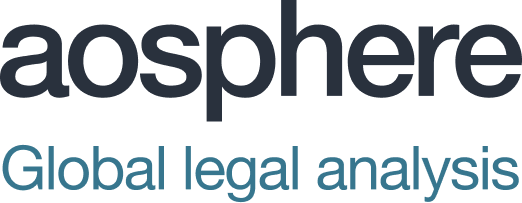The EU Markets in Crypto Assets Regulation 2023/1114 (MiCA) entered into force in the EU on 29 June 2023. Although provisions relating to issuers of asset-referenced tokens and e-money tokens have applied from 30 June 2024, the remainder of the provisions, relating mainly to crypto asset service provider (CASP) authorisation, apply from 30 December 2024.
MiCA is a regulation and as a result will apply directly throughout the EU without any national implementing legislation being required. However, Member States will need to ensure their national legislation aligns with MiCA. Where applicable, changes to existing crypto regimes may be needed.
In addition, certain measures have been left to the discretion of individual Member States. For example, a Transition Period for CASPs of up until 1 July 2026 may be implemented, but this will be at the option of individual Member States as to whether to implement in full or opt for a shorter or no transition period. We are tracking implementation across Member States through our MiCA Implementation Tracker.
Below we highlight various approaches Member States are taking with respect to MiCA, as well as certain other interesting aspects which have or are being introduced as part of different Member States proposals/new legislation.
A. Additional investor/consumer protection and warnings
Germany
In accordance with the Retail Investor Protection Act, BaFin carefully monitors the risks that could emerge for investors from crypto assets and other business models based on DLT/blockchain. BaFin has already reacted to multiple such risks and issued numerous warnings as a result, including highlighting the highly speculative – and risky – nature of investments in crypto assets. BaFin also advised potential investors to be very sceptical of any recommendations they see on social media.
France
In France, the AMF and the ACPR have been seeking to address consumer risk through regulator warnings and increasing overall consumer education about crypto investments. In this respect, the AMF publishes, on a regular basis on its website, warnings to the public and blacklists of unauthorised companies and websites, notably relating to crypto assets derivatives.
Netherlands
The AFM has recently published a research report on the risks of using crypto (platform) apps. In particular, consumers, for whom crypto is not suitable, may start trading in crypto assets because they are recommended by acquaintances and that such programs could lead to wrongful encouragement by existing users to their referrals to trade more than necessary.
The report from the AFM recognizes that under the current legislative framework referral programmes are allowed, and that this will largely remain so under the upcoming MiCA framework. However, based on the tools that the MiCA framework will provide to regulators to reduce risks for consumers in the crypto market, the AFM is considering imposing additional requirements on how information is provided to users, particularly concerning the financial aspects of referral programmes.
Spain
In January 2022, the CNMV issued a circular relating to the advertising of crypto assets which establishes the criteria to be followed when promoting crypto assets and provides for a supervisory regime including prior notification to the CNMV of mass advertising. All advertising of crypto assets made by a natural or legal person to investors in Spain, including potential investors, in which such assets are implicitly or explicitly offered or marketed as an investment are subject to this circular.
B. Additional regulation in and around MiCA
Czech Republic
The Czech Republic has distinguished between crypto asset services under MiCA, which trigger CASP authorisation requirements, and services associated with virtual assets, which trigger an obligation to obtain a new virtual asset services (nVASP) licence. The nVASP licence will be triggered mainly by providing services relating to NFTs that are used for investment or payment purposes.
In addition, a general trade licensing requirement may apply to a narrow category of services that are not within scope of CASP authorisation or the nVASP licence, for example the provision of advice in respect of NFTs or provision of any services relating to NFTs that cannot be used for payment or investment.
Germany
A regime already exists in Germany with regard to custody of crypto assets. It will continue to exist alongside MiCA and will cover the custody of crypto assets that do not fall under MiCA but qualify as cryptographic instruments within the meaning of the German specific framework. This previous regime will be renamed the "qualified crypto custody business" and is subject to German authorisation requirements. It will therefore be necessary for both issuers and providers of crypto services to carefully examine which crypto asset term the respective tokens fall into, and which supervisory regime will subsequently apply.
C. Market feedback/commentary
Estonia & Lithuania - concerns around supply of appropriate staff
Given the relatively small size of Estonia and Lithuania’s population, there may be some practical issues in terms of finding suitable individuals to take on roles in the management bodies as required under MiCA and new local legislation – under the new regime in Estonia it is necessary to have two suitable members of the management board and in Lithuania it will be necessary to have at least four suitable members of management bodies meeting strict reputational, qualification and other requirements.
Poland
Crypto market participants continue to raise concerns with the Polish draft legislation, relating to, for example:
- excessively high annual supervisory fees;
- giving the KNF powers that could be used without adequate judicial oversight or remedy (such as ordering the freezing of crypto assets); and
- shortening the Transition Period to 6 months which has raised concerns about obtaining licences by 30 June 2025.
D. Regulator guidance and communication
Austria
The FMA has been proactive in providing helpful and practical information for CASP applicants. Their guide sets out expectations and answers questions in relation to authorisation applications and includes a CASP roadmap and information for CASP applicants. Applications for authorisation as a CASP can already be submitted to the FMA, particularly as the process may take several months.
Czech Republic
The CNB introduced a specialised communication channel to receive FinTech-related enquiries from all financial market participants called the “FinTech contact point” and holds regular meetings with the FinTech community/wider public and roundtables on specific FinTech-related topics.
France, Germany, Malta
For firms already registered/authorised in these countries, there is or is intended to be a simplified CASP authorisation procedure. In Germany and France, market entrants can submit their applications before MiCA comes into force thus enabling them to enter dialogue with the relevant regulators at an early stage. The AMF in France has published a Guide on its website, including information on how an application file should be submitted.
Italy, Luxembourg, Netherlands, Spain
The CSSF in Luxembourg, CONSOB in Italy and CNMV in Spain have each invited those considering seeking authorisation as CASPs to initiate preliminary discussions regarding the application process. In Spain, the authorisation application process opened in September 2024 and the CNMV has also published an authorisation manual and various forms to assist with the application process.
The AFM in the Netherlands is also open to firms opting to engage in a “pre-scan” of the authorisation application in order to try to make the process as efficient as possible. Also, for firms who are already registered with the DNB in the Netherlands under the AMLD5 registration, the AFM may decide on a lighter MiCA-assessment on specific components or topics where these have previously been assessed by AFM which may reduce time for approval.
How aosphere can help
Rulefinder Crypto Assets' in-depth MiCA coverage includes detailed surveys for the EU and individual EU member states, prepared and periodically updated by local counsel.
For further background on MiCA please see the EU Member States Survey and report, available to subscribers of Rulefinder Crypto Assets.





